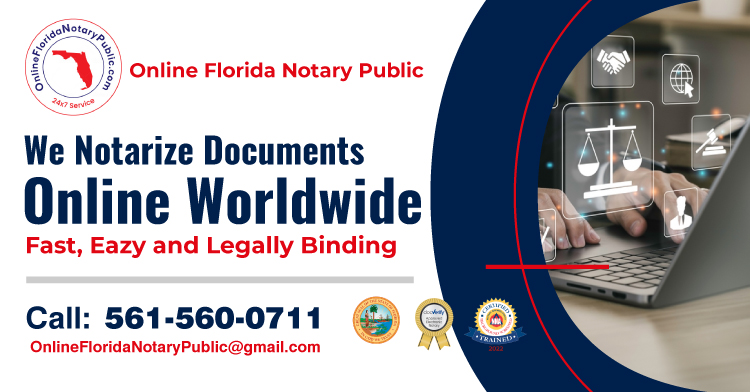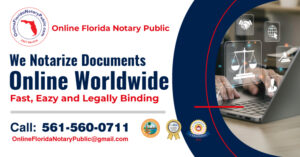Remote Notary
In this digital age, technology continues to revolutionize various aspects of our lives, and one area that is experiencing significant innovation is the field of notary services. The days of needing to physically appear before a notary public to sign and authenticate documents are quickly becoming a thing of the past. Enter remote notary services, a game-changer in the world of legal document verification.
With remote notary services, individuals can now have their documents notarized conveniently and securely from the comfort of their own homes or offices. This revolutionary service utilizes video conferencing technology to connect individuals with notaries, ensuring that the signing process is conducted in real-time and streamlining the entire notarization process.
Not only does this technology offer convenience, but it also provides enhanced security features such as identity verification and tamper-proof digital records. Whether you need to notarize mortgage documents, power of attorney forms, or other legal paperwork, remote notary services offer a convenient and efficient solution. Join us as we dive into the world of remote notary services, exploring how this innovative technology is transforming the way we authenticate documents and perform notarial acts in this fast-paced digital world.
What is remote notary services?
Remote notary services are a new way of authenticating documents without the need for physical presence. It allows individuals to have their documents notarized remotely using video conferencing technology. Remote notary services offer convenience, speed, and reduced costs, making them a popular choice for many individuals and businesses.
The process of remote notarization is simple. The signer and notary meet over a video call, during which the notary verifies the signer’s identity and witnesses the signing of the document. The notary then applies an electronic notary seal to the document, which is then immediately and securely emailed to you.
Remote notary services are available in all 50 states in the US and are becoming increasingly popular globally. They are especially popular among individuals who are unable to physically appear before a notary public due to distance, mobility issues, or scheduling conflicts.
Benefits of remote notary services
Remote notary services offer several benefits over traditional notary services. Some of the key benefits of remote notary services include:
Convenience
The main benefit of remote notary services is convenience. With remote notary services, individuals can have their documents notarized from the comfort of their own homes or offices, eliminating the need to travel to a notary public’s office. This is especially beneficial for individuals who live in rural areas, have mobility issues, or are unable to take time off work.
Enhanced Security
Remote notary services offer enhanced security features that are not available with traditional notary services. Remote notaries use video conferencing technology to verify the signer’s identity, ensuring that the person signing the document is who they claim to be. They also use tamper-proof digital records to ensure that the document has not been altered after signing.
Speed
Remote notary services offer faster turnaround times than traditional notary services. With remote notary services, individuals can have their documents notarized in a matter of minutes, eliminating the need to wait for an appointment with a notary public.
Cost-Effective
Remote notary services are cost-effective and can save individuals and businesses money. With remote notary services, there are no travel costs, and the notary fees are generally a little higher than traditional notary services. For example in Florida notary service at The UPS Store or Amscot is $10 per notary act. Online Florida Notary Public and most remote notary service charge $25 for the first notarization. Additional notarization are $25 each notary act. These fees are set by The State of Florida. Florida also has mobile notary services like Notary Public 2 You that will send a traveling notary right to your home or office. Traveling notary services charge a traveling fee of around $100.
The legality of remote notary services
Remote notary services are legal in all 50 states in the US, and the number of states that allow remote notarization is increasing every year. However, the requirements for remote notarization vary from state to state.
In general, remote notarization is allowed if the notary is commissioned in the state where the document is being signed, the signer is physically located in the state where the document is being signed, and the notary and signer can communicate in real-time using video conferencing technology.
It is important to note that some documents cannot be notarized remotely, such as wills and trusts, and some states have additional requirements for remote notarization, such as the use of specific technology platforms.
How remote notary services work
Remote notary services work by connecting individuals with notaries using video conferencing technology. The process of remote notarization typically involves the following steps:
1. The signer and notary connect over a video call.
2. The notary verifies the signer’s identity using government-issued identification or other approved methods.
3. The notary witnesses the signing of the document and applies an electronic notary seal.
4. The notary stores the document securely in the cloud.
Remote notarization is conducted in real-time, allowing the notary to witness the signing of the document and apply the electronic seal immediately.
Remote notary technology and tools
Remote notary services rely on a variety of technology and tools to facilitate the notarization process. Some of the key technology and tools used in remote notarization include:
Video Conferencing
Video conferencing technology is used to connect the signer and notary in real-time. Video conferencing platforms such as Zoom, Skype, and Webex are commonly used for remote notarization.
Electronic Signatures
Electronic signatures are used to sign the document remotely. Electronic signatures are legally binding and are accepted in most states.
Electronic Notary Seals
Electronic notary seals are used to authenticate the document and indicate that it has been notarized. Electronic notary seals are tamper-proof and are stored securely in the cloud.
Identity Verification
Identity verification tools are used to verify the signer’s identity remotely. These tools typically involve the use of government-issued identification or other approved methods.
Remote notary vs traditional notary services
Remote notary services offer several advantages over traditional notary services. Remote notary services are more convenient, cost-effective, and offer enhanced security features.
Traditional notary services, on the other hand, require the signer to physically appear before a notary public, which can be inconvenient and time-consuming. Additionally, traditional notary services are often more expensive than remote notary services.
However, there are some situations where traditional notary services may be required, such as when the document cannot be notarized remotely or when the signer is not comfortable with remote notarization.
Steps to becoming a remote notary
Becoming a remote notary is a relatively straightforward process. The requirements for becoming a remote notary vary from state to state, but in general, the following steps are required:
1. Meet the eligibility requirements for becoming a notary in your state.
2. Complete the required training and education.
3. Pass a background check.
4. Obtain a notary commission from your state.
5. Register with a remote notary service provider.
Once you have completed these steps, you can begin offering remote notary services to individuals and businesses.
Remote notary services for different industries
Remote notary services are used in a variety of industries, including real estate, finance, and legal services. Remote notary services are especially popular in the real estate industry, where they are used to notarize mortgage documents and other real estate-related paperwork.
Remote notary services are also used in the finance industry, where they are used to notarize loan documents and other financial paperwork. In the legal industry, remote notary services are used to notarize legal documents such as power of attorney forms and wills.
Remote notary services for international transactions
Remote notary services are becoming increasingly popular for international transactions. With remote notary services, individuals can have their documents notarized remotely, regardless of their location.
This is especially beneficial for individuals who are located in different countries and need to sign documents remotely. Remote notary services offer a convenient and efficient solution for international transactions, eliminating the need for individuals to travel to a notary public’s office or embassy.
Conclusion
Remote notary services are a game-changer in the world of legal document verification. They offer convenience, enhanced security features, and cost-effectiveness, making them a popular choice for individuals and businesses.
The future of notary services is here, and remote notary services are leading the way. As technology continues to evolve, it is likely that remote notary services will become even more popular, revolutionizing the way we authenticate documents and perform notarial acts in this fast-paced digital world.
To start the online notary service click here.





